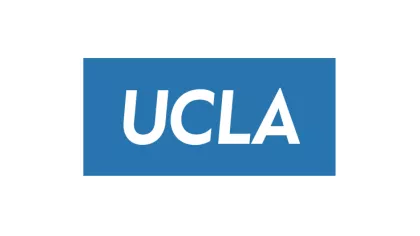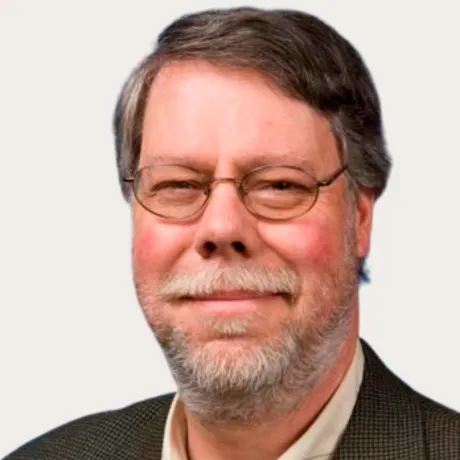Mark A. Peterson, PhD, is a senior fellow at the UCLA Center for Health Policy Research and professor in the Department of Public Policy at the UCLA Meyer and Renee Luskin School of Public Affairs. He is also a professor in the Department of Political Science at the Division of Social Science in the UCLA College, a professor in the Department of Health Policy & Management at the Fielding School of Public Health, and a professor at the UCLA School of Law.
A specialist on American national institutions and the policy process, Peterson’s scholarship focuses on the presidency, Congress, interest groups, and public opinion, evaluating interactions among them, and their implications for policymaking, both within the general domain of domestic policy and with special attention to national health care policy, Medicare reform, and HIV/AIDS politics and policy. He also studies the role of research evidence in policymaking, including the contextual factors that promote or inhibit its influence.
His books include "Legislating Together: The White House and Capitol Hill from Eisenhower to Reagan," "Institutions of American Democracy: A Republic Divided" (co-authored), and edited or co-edited "Institutions of American Democracy: The Executive Branch," "Healthy Markets? The New Competition in Medical Care," "Uncertain Times: Kenneth Arrow and the Changing Economics of Health Care," and the four-volume series, "Health Politics and Policy." He has almost completed the book manuscript, “American Sisyphus: Health Care and the Challenge of Transformative Policymaking,” a comprehensive analysis of health care reform in the U.S. For nine years he was the editor of the Journal of Health Politics, Policy and Law.
Peterson was a founding team member of the Blue Sky Health Initiative to transform the U.S. health and health care system, which advised Congress and the executive branch on the inclusion of population health strategies in the Affordable Care Act. As an American Political Science Association (APSA) Congressional Fellow, he was a legislative assistant for health policy for U.S. Senator Tom Daschle. He is currently on the Faculty Task Force of the California Health Benefits Review Program. He also served on the National Academy of Social Insurance's Study Panel on Medicare and Markets and on the Health Policy Advisory Committee for the Barack Obama for President Campaign. He chaired the National Advisory Committees for the Robert Wood Johnson Foundation's Scholars in Health Policy Research program and its Changes in Health Care Financing and Organization (HCFO) program, and was a member of the National Advisory Committees for RWJF’s Investigator Awards in Health Policy Research Program and Center for Health Policy at the University of New Mexico.
A past elected member of the Council of the American Political Science Association, Peterson is a founding member of the Association's Organized Section on Health Politics and Policy, and was elected president of its Organized Section on Public Policy. He has chaired the University of California Academic Senate's Health Care Task Force. Peterson is an elected member of the National Academy of Social Insurance and recipient of the Richard E. Neustadt Award from the APSA's Presidents and Executive Organized Section, the APSA's E. E. Schattschneider Award, the Pi Sigma Alpha Award from the Midwest Political Science Association, and a Robert Wood Johnson Foundation Investigator Award in Health Policy Research.
Peterson received his undergraduate degree, master of arts, and doctorate in political science from the University of Michigan.
Discover, Connect:
Explore

Policy Research Report
Opening Doors for All: Improving Health in Housing and Homelessness
Summary: California’s current homelessness crisis is unprecedented. In early 2020, more than 160,000 persons experienced homelessness on any given day, representing a 40% increase since 2015. Effects on individuals experiencing housing insecurity and the community's public health have been profound, including recent outbreaks of hepatitis A and typhus in communities experiencing homelessness.
The UCLA Center for Health Policy Research (CHPR) convened a virtual event to bring together key voices highlighting evidence-based strategies to help address this crisis at a time when state lawmakers have a significant budget surplus available to potentially invest in addressing this crisis. Focusing on the intersection of health and homelessness, the 2021 E.R. Brown Symposium, Opening Doors for All: Improving Health in Housing and Homelessness featured experts from academia, state and local government, nonprofit organizations, the private sector, and speakers with lived experience in two days of discussions on past successes, lessons learned, and potential solutions to create a healthier, more prosperous California for all.
This new policy paper outlines evidence-based strategies shared by local, state, and national leaders to help address the homelessness crisis in California.
Read the Publications:

External Publication
Medicare and Medicaid at 50: America's Entitlement Programs in the Age of Affordable Care
UCLA Faculty Associate Mark Peterson has a chapter "The Third Rail of Politics? Medicare's Untouchability" in this book assessing Medicare and Medicaid at 50, edited by Alan B. Cohen, et al.
For 50 years, Medicare and Medicaid have stood at the center of a contentious debate surrounding American government, citizenship, and health care entitlement. In Medicare and Medicaid at 50, leading scholars in politics, government, economics, health policy, and history offer a comprehensive assessment of the evolution of these programs and their impact on society — from their origins in the Great Society era to the current battles over the Affordable Care Act.Publication Authors:
- Mark A. Peterson, PhD

Journal Article
A Population-Based Survey of Prostate-Specific Antigen Testing Among California Men at Higher Risk for Prostate Carcinoma (Cancer)
Publication Authors:
- Benjamin A. Spencer
- Susan H. Babey, PhD
- Ninez A. Ponce, PhD, MPP
- Hongjian Yu, Ph.D.
- T. Getzug
- Mark A. Peterson, PhD
- Mark S. Litwin

Policy Research Report
Opening Doors for All: Improving Health in Housing and Homelessness
Summary: California’s current homelessness crisis is unprecedented. In early 2020, more than 160,000 persons experienced homelessness on any given day, representing a 40% increase since 2015. Effects on individuals experiencing housing insecurity and the community's public health have been profound, including recent outbreaks of hepatitis A and typhus in communities experiencing homelessness.
The UCLA Center for Health Policy Research (CHPR) convened a virtual event to bring together key voices highlighting evidence-based strategies to help address this crisis at a time when state lawmakers have a significant budget surplus available to potentially invest in addressing this crisis. Focusing on the intersection of health and homelessness, the 2021 E.R. Brown Symposium, Opening Doors for All: Improving Health in Housing and Homelessness featured experts from academia, state and local government, nonprofit organizations, the private sector, and speakers with lived experience in two days of discussions on past successes, lessons learned, and potential solutions to create a healthier, more prosperous California for all.
This new policy paper outlines evidence-based strategies shared by local, state, and national leaders to help address the homelessness crisis in California.
Read the Publications:

External Publication
Medicare and Medicaid at 50: America's Entitlement Programs in the Age of Affordable Care
UCLA Faculty Associate Mark Peterson has a chapter "The Third Rail of Politics? Medicare's Untouchability" in this book assessing Medicare and Medicaid at 50, edited by Alan B. Cohen, et al.
For 50 years, Medicare and Medicaid have stood at the center of a contentious debate surrounding American government, citizenship, and health care entitlement. In Medicare and Medicaid at 50, leading scholars in politics, government, economics, health policy, and history offer a comprehensive assessment of the evolution of these programs and their impact on society — from their origins in the Great Society era to the current battles over the Affordable Care Act.Publication Authors:
- Mark A. Peterson, PhD

Journal Article
A Population-Based Survey of Prostate-Specific Antigen Testing Among California Men at Higher Risk for Prostate Carcinoma (Cancer)
Publication Authors:
- Benjamin A. Spencer
- Susan H. Babey, PhD
- Ninez A. Ponce, PhD, MPP
- Hongjian Yu, Ph.D.
- T. Getzug
- Mark A. Peterson, PhD
- Mark S. Litwin




